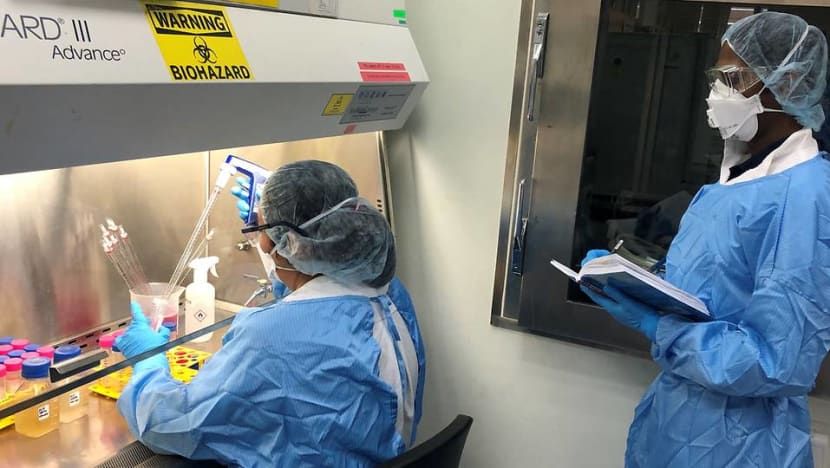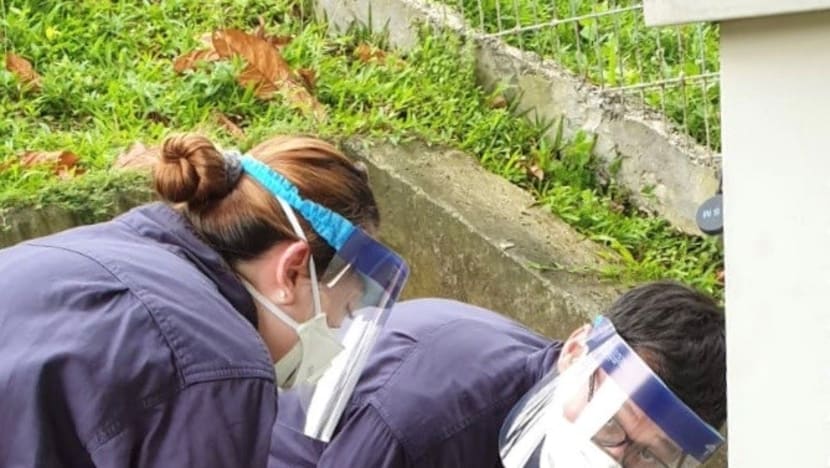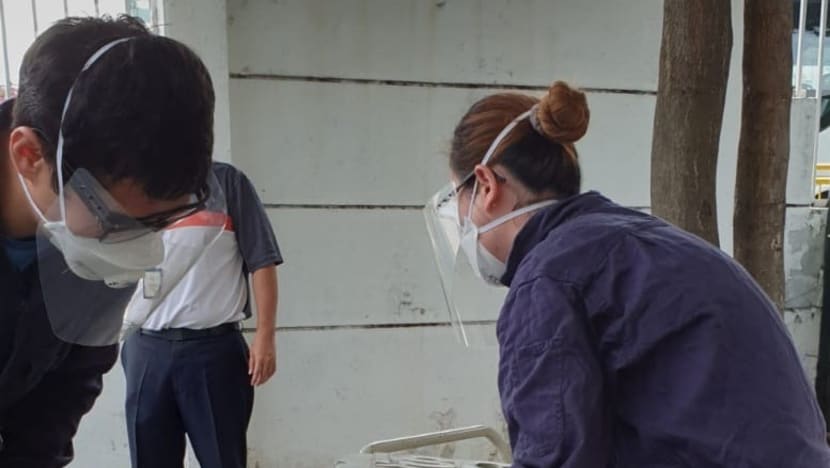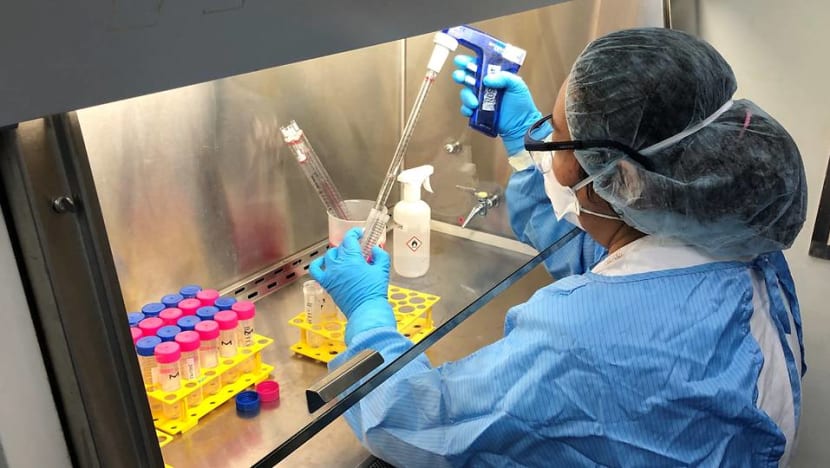More wastewater testing under way in Singapore to tackle COVID-19; pilot launched at foreign worker dormitories

Lab work being conducted. (Photo: NEA, PUB, HTX)
SINGAPORE: Singapore is expanding its wastewater testing to tackle COVID-19, with a pilot programme launched at 20 large foreign worker dormitories in the country, the National Environment Agency, National Water Agency PUB and Home Team Science and Technology Agency (HTX) said in a joint news release on Friday (Jun 19).
While the testing of wastewater to assess the COVID-19 situation in a place is not new and has been tried by other countries, the NEA's Environmental Health Institute has used it to support monitoring and management of COVID-19 transmission among workers living in dormitories.
Earlier in June, Minister for National Development Lawrence Wong said authorities are extracting wastewater from manholes to test for viral fragments. This was done on top of standard testing methods.
“This provides an additional indicator to tell us if a specific group, such as those living in a dormitory, has infected people among them,” Mr Wong said on Jun 9.

As a group, migrant workers living in dormitories in Singapore have been the hardest-hit by COVID-19. As of Thursday, this group made up about 94 per cent of the 41,473 confirmed cases.
According to the press release, the amount of viral material in wastewater from a community could reveal the level of COVID-19 spread there. This can then trigger the necessary response plans and mitigation actions, such as individual testing and isolation.
The team from NEA, supported by PUB and HTX, has been sampling wastewater from water reclamation plants and workers’ dormitories.

TRIAL RESULTS AT MIGRANT WORKER DORMS
At the dormitories, the trial results showed the concentration of SARS-CoV-2 material in wastewater is related to the prevalence of COVID-19 in these living spaces, the agencies said.
SARS-CoV-2 is the virus that causes COVID-19.
“For dormitories in the pilot programme with no detected COVID-19 cases, a zero reading for SARS-CoV-2 material in the wastewater provided the added assurance that the dormitories remain free from infection, and to allow the workers to leave the dormitories for work,” according to the media release.
If viral material was detected in the wastewater of some dormitories, more swab tests were performed instead, “leading to more detections and isolation of cases, including asymptomatic ones”.
“This facilitated a more targeted swabbing strategy and contributed to the mitigation of further transmission,” the agencies said.
BENEFITS OF USING WASTEWATER TESTING
Wastewater testing can therefore act as a warning system for the presence of COVID-19 cases, and the trending of SARS-CoV-2 concentration over time can determine if infection control measures taken have been effective.
Wastewater samples can also show information on a cross-section of the community, which allows for the monitoring of large groups.

“If positive signals are detected from wastewater at a particular site, clinical testing for COVID-19 can be carried out for the affected community, allowing screening for COVID-19 to be carried out in a more targeted manner,” said the agencies.
However, detection of viral material or ribonucleic acid in the wastewater does not suggest the presence of viable or infectious virus.
“Without a host, the virus will not be able to propagate over time in wastewater,” read the news release.
READ: Swiss researchers see sewage as early warning sign for COVID-19 infections
READ: Australian sewers a front line in bid to flush out coronavirus
More research is needed to understand the sensitivity of the method in detecting early or a few number of cases, the agencies said.
"At low level transmission, wastewater surveillance at the treatment plant appears to be less sensitive than clinical surveillance of cases in Singapore,” explained Associate Professor Ng Lee Ching, director of NEA’s Environmental Health Institute.
“Monitoring is ongoing to determine the trending of the concentration of viral material at the water reclamation plants, and the relationship between the viral material concentration and prevalence of COVID-19 in Singapore.”
The methodology for wastewater sampling and testing for COVID-19 was developed by NEA's Environmental Health Institute, with scientific inputs from the Singapore Centre for Environmental Life Sciences at the Nanyang Technological University, Singapore-Massachusetts Institute of Technology Alliance for Research and Technology and the National University of Singapore.
BOOKMARK THIS: Our comprehensive coverage of the coronavirus outbreak and its developments
Download our app or subscribe to our Telegram channel for the latest updates on the COVID-19 outbreak: https://cna.asia/telegram












